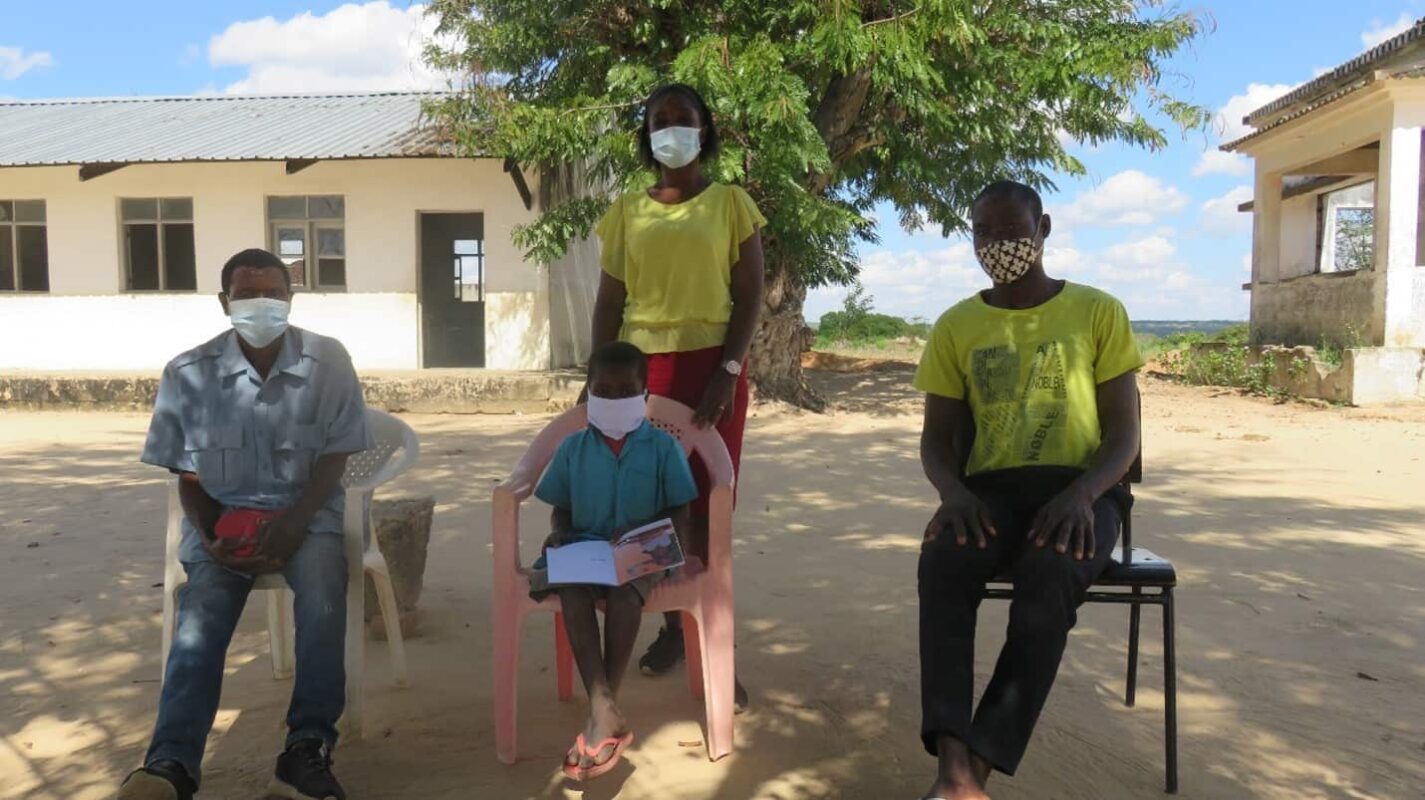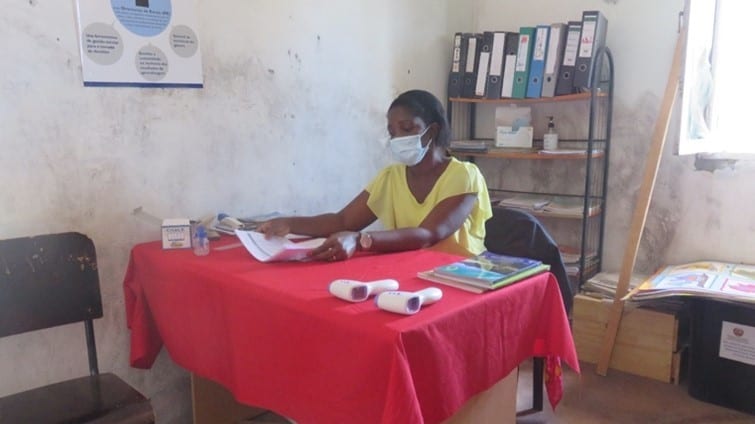Lisons! s'est amélioré presque 800,000 compétences en lecture et en écriture des élèves en développant, imprimer et distribuer des millions de livres écrits en À Makhuwa, Echuwabo et Elomwe, les trois langues les plus parlées au Mozambique
Province de Nampula au Mozambique L'intérêt de João Manuel pour la lecture est né avant qu'il ne commence l'école.. Son frère aîné a ramené à la maison des livres dans leur langue locale, et Manuel a commencé à les parcourir même s'il ne savait pas encore lire.
« L’année dernière, je voyais mon frère et ses amis lire leurs petits livres à la maison., et j'ai aimé voir les belles illustrations à l'intérieur,» dit Manuel, âge 6.

Manuel termine sa première année d'école et est déjà devenu un lecteur solide avec le soutien de l'USAID financé par l'USAID Lisons!/Lisons! Programme d'éducation bilingue mis en œuvre en partenariat avec le ministère de l'Éducation du Mozambique.
Lisons! s'est amélioré presque 800,000 compétences en lecture et en écriture des élèves en développant, impression et distribution 11 millions de livres écrits dans Emakhuwa, Echuwabo et Elomwe - les trois langues les plus couramment parlées au Mozambique. Le programme travaille également sur l'acquisition et le soutien de l'alphabétisation d'une langue seconde pour préparer les enfants à une transition progressive vers les portugais au 2,000 écoles publiques bilingues qu'il soutient.
L'accès précoce aux matériaux de lecture est une partie importante de l'alphabétisation des bâtiments. Cependant, Les enfants du Mozambique rural ont souvent peu ou pas d'exposition aux livres avant d'entrer dans l'école. Les livres auxquels ils ont accès sont généralement en portugais plutôt que dans leur langue maternelle, Faire apprendre à lire un défi.
Tandis que le portugais est la langue nationale de l'enseignement, moins que 10 pour cent des enfants le parlent quand ils commencent à l'école.
Apprendre à lire dans une langue qu'ils parlent déjà et comprennent non seulement à l'école plus intéressante et moins intimidante pour les jeunes élèves, mais aide également à jeter une base pour l'apprentissage tout au long de la vie.
Les livres de lecture supplémentaires ont des illustrations et des histoires adaptées aux enfants qui sont pertinentes pour la vie quotidienne dans le Mozambique rural, Tout en suscitant également la curiosité des enfants et en introduisant de nouvelles idées et concepts qui leur permettent de découvrir un monde plein de possibilités.
Complétant les initiatives du ministère de l'Éducation, Lisons! Soutenu les gestionnaires des écoles pour assurer la poursuite de l'apprentissage dans des environnements à faible technologie. Le programme a encouragé les enseignants et les directeurs scolaires à prêter ces livres de contes aux enfants à lire à la maison avec leurs familles.

Ana Paula Antonia est enseignante de Manuel et directrice de son école dans le district de Murrupula, Province de Nampula. Elle a travaillé pour s'assurer que les élèves pouvaient continuer à lire à la maison pendant les fermetures d'écoles pandémiques Covid-19 et ont été impressionnés par la façon dont les jeunes étudiants comme Manuel ont pu se développer indépendamment dans des circonstances difficiles.
«C'était surprenant pour moi de voir comment João s'est développé si rapidement, En dépit de sa première année à l'école. Je ne doute pas que [João] toujours être proche de son frère et amis et de la lecture de leurs livres l'a aidé,"Dit Antonia.
Le père de Manuel est fier des progrès de son fils et attribue les compétences en littératie de Manuel pour «jouer» avec son frère Lisons! livres d'histoires à un âge précoce.